Vaginal atrophy symptoms and how to treat them
With one in three women experiencing vaginal atrophy symptoms, we spoke to an expert about the causes and treatments


You might have experienced vaginal atrophy symptoms which include itching and burning around the vagina and a frequent need to urinate. Vaginal atrophy is a condition that can be easily managed but has a very unpleasant impact on the lives of those living with it.
If you think you may be experiencing vaginal atrophy, fear not. We spoke to physician Dr. Laura Purdy to clarify exactly what vaginal atrophy is, why it occurs, and - most importantly - how you can treat it.
Vaginal atrophy is particularly prominent in women going through menopause, in which case our guide to the best menopause supplements can provide additional support during this time.
What is vaginal atrophy?
Put simply, vaginal atrophy is the thinning and drying of the vaginal walls. It is thought to affect around one in three women, although it’s even more common in women going through menopause, affecting 50-60% of this population. This is because when the body fails to produce enough estrogen, the cells of the vagina become dehydrated and this can cause dryness and discomfort.
Purdy says that although it may be something that you experience long-term, vaginal atrophy can be treated in a variety of ways - from taking supplements to prescribed medication.
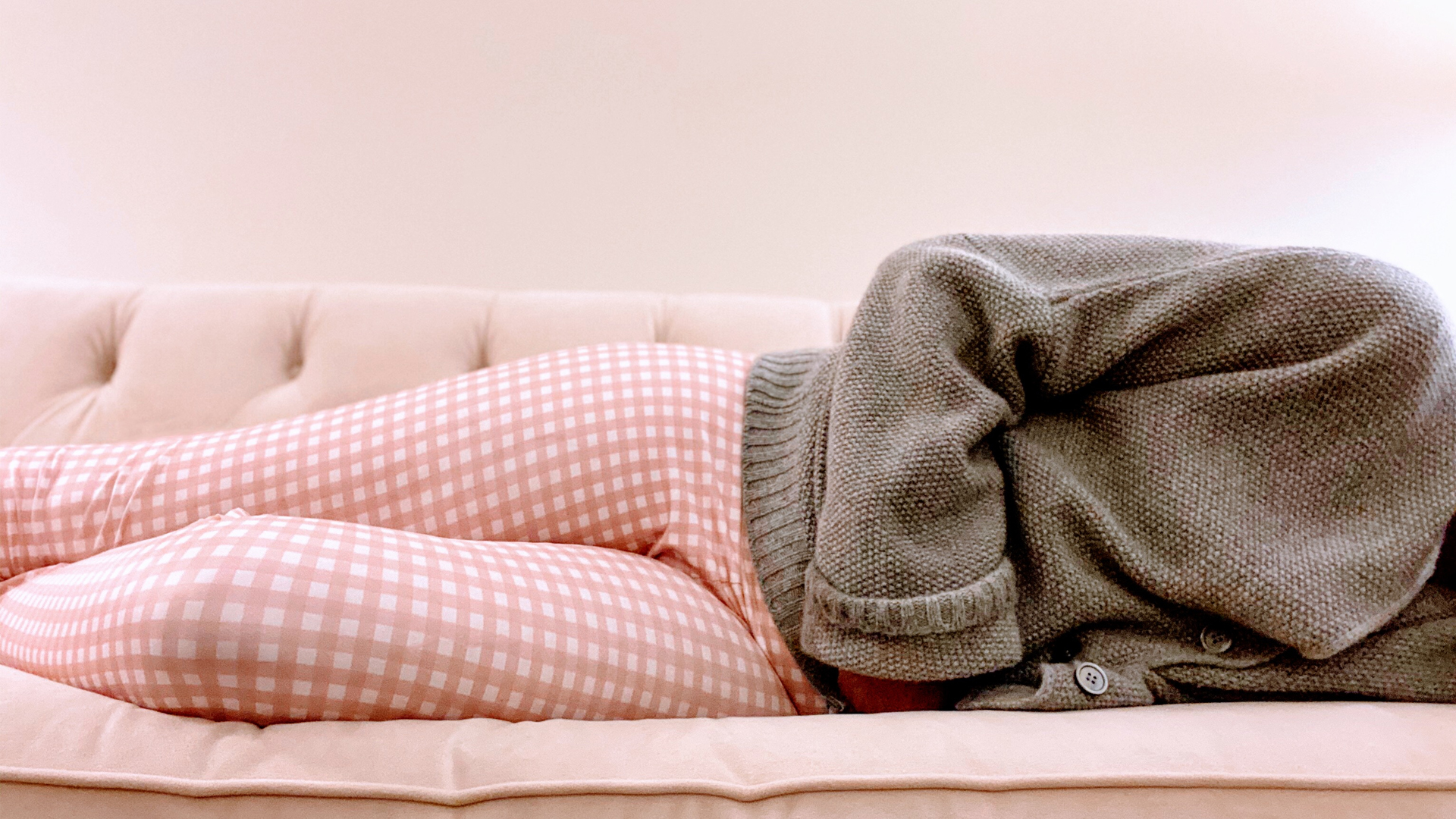
Vaginal atrophy symptoms: what to look for
When the vaginal layers lose support and structure, several symptoms can occur. Purdy says these may include:
- Dryness and itching
- Pain or burning during intercourse
- Frequent urination
- Frequent urinary tract infections (UTIs)
- Atypical discharge or bleeding
- Decreased lubrication during sex
- Bleeding after intercourse
- Pelvic floor dysfunction
As the symptoms vary widely, and are also relatable to many other conditions, it’s best to seek the advice of your doctor. A doctor may perform a pelvic examination, take a urine sample, or carry out an acid balance test - which involves taking a sample of fluids from the vagina. Ultimately, this will help your doctor to determine whether you’re experiencing vaginal atrophy.
Get the Fit&Well Newsletter
Start your week with achievable workout ideas, health tips and wellbeing advice in your inbox.
Although the majority of those experiencing vaginal atrophy are menopausal, the condition can also be found in those going through radiotherapy, chemotherapy, and other cancer treatments. Purdy says she has seen women with vaginal atrophy after giving birth, during breastfeeding, or when taking other medication such as birth control or spironolactone too.
With vaginal dryness being the main symptom of vaginal atrophy, it's important to remember that many other things can cause vaginal dryness - from your pH balance being disturbed, to a side effect of many medications.
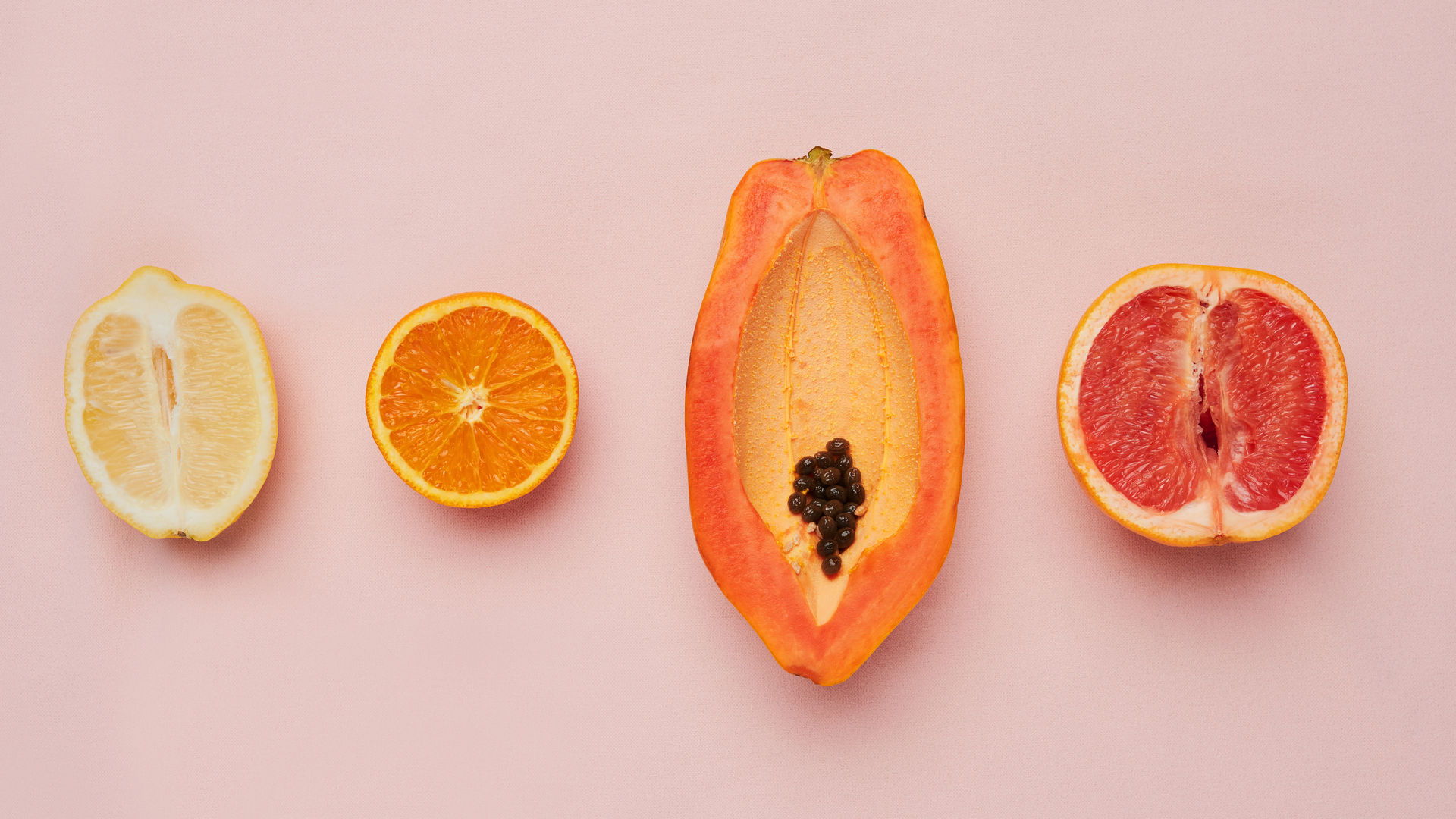
How can you treat vaginal atrophy?
“Vaginal atrophy can substantially interfere with the quality of life of those experiencing symptoms,” says Purdy.
The good news is, as well as natural remedies for vaginal dryness, there are plenty of vitamins and minerals out there to help curb the symptoms of vaginal atrophy.
Vitamin C: This is a key nutrient to be getting from your diet, as it helps to produce collagen which can strengthen the vaginal walls. A key tip is to steam your vegetables rather than boil them because vitamin C is water-soluble so you can lose up to 45% of the nutrients in the water.
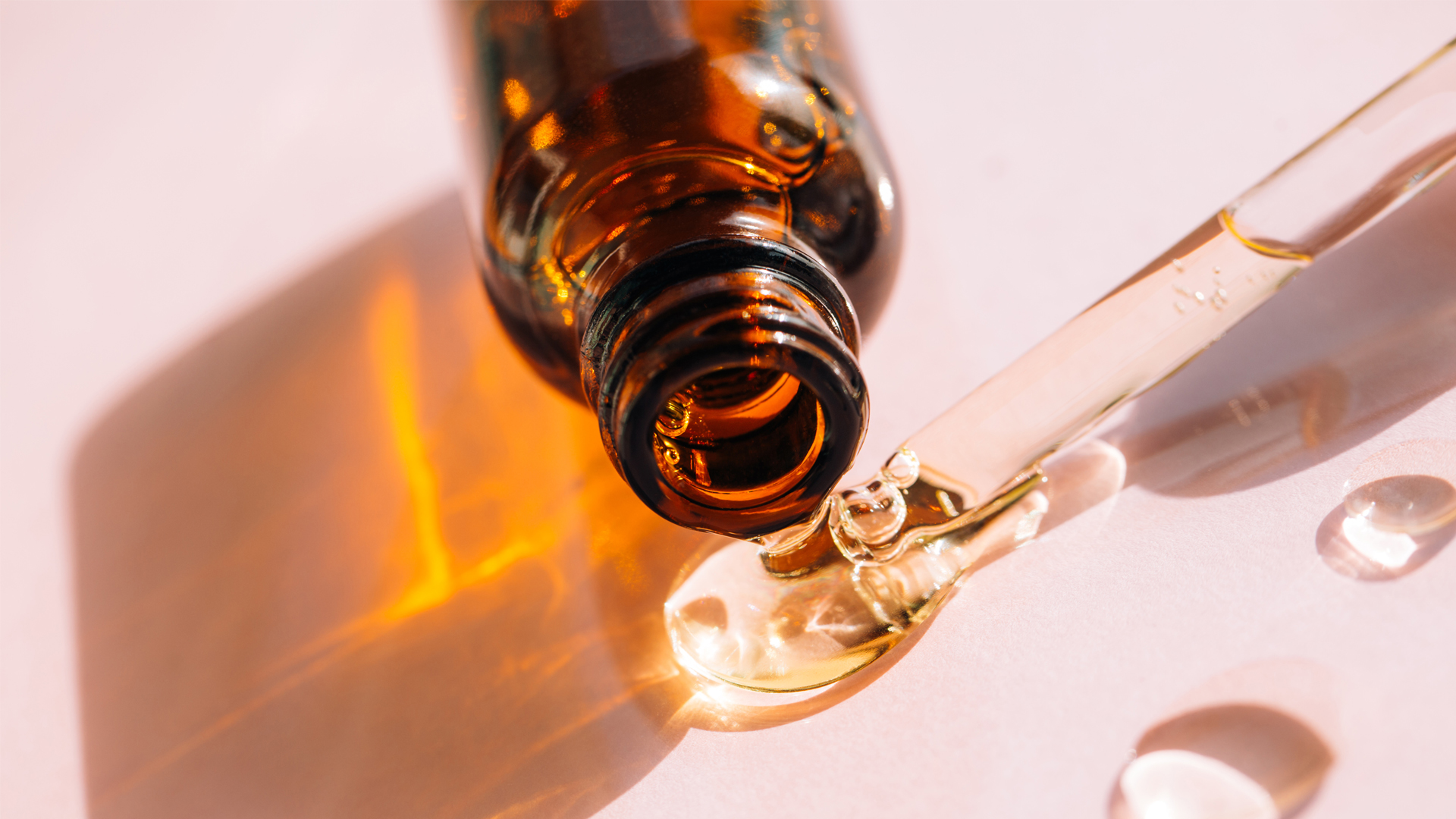
Phytoestrogens: A diet rich in phytoestrogens is a really easy way to help encourage your body to produce a higher level of moisture and regulate your hormones. Phytoestrogens are plant compounds that mimic the effect of estrogen. You can get them by eating foods such as flaxseed, lentils, and chickpeas, as well as fermented soya like tempeh and miso.
Vitamin E: A 2016 study found that Vitamin E helped to improve the symptoms of vaginal atrophy, including dryness, with the results being relatively similar to the effects of estrogen cream.
Vitamin D: In a 2015 study, post-menopausal women who were given a vitamin D vaginal suppository for eight weeks had a reduction in the PH of their vagina, as well as improvements in vaginal dryness.
Omega-3 fats: Essential fats play an important role in ensuring healthy cell membranes and helping vaginal tissues retain the water that keeps them plump and elastic. Omega-3 foods include oily fish, nuts, and seeds, although you can also take one of the best fish oil supplements to top up your levels.
Lifestyle: Ensuring a low intake of alcohol, nicotine, and caffeine is important when it comes to treating the symptoms of vaginal atrophy, as is drinking plenty of water to keep hydrated from the inside out.
Estrogen treatment: “Estrogen supplementation, whether oral or vaginal, is the gold standard treatment for vaginal atrophy,” says Purdy. This is because the vaginal tissues are estrogen-responsive, and many of the symptoms of vaginal atrophy are reversed by re-exposing the tissue to estrogen. Speak to your doctor if you are considering estrogen replacement therapy as an option.
Want to read more about women's health, take a look at our features covering yoga for menopause and the best menopause exercises.

Mollie is a lifestyle journalist who regularly contributes to publications including Insider, Cosmopolitan, The Metro, Healthline, HelloGiggles, Reviewed, HuffPost, Independent, and Fabulous, amongst others. Particularly, Mollie covers health and beauty. Basset Hounds are Mollie's favourite things on the earth - she has her own named Olive. Mollie loves anything with too much sugar in, the color yellow, pop culture, and musical theatre.
-
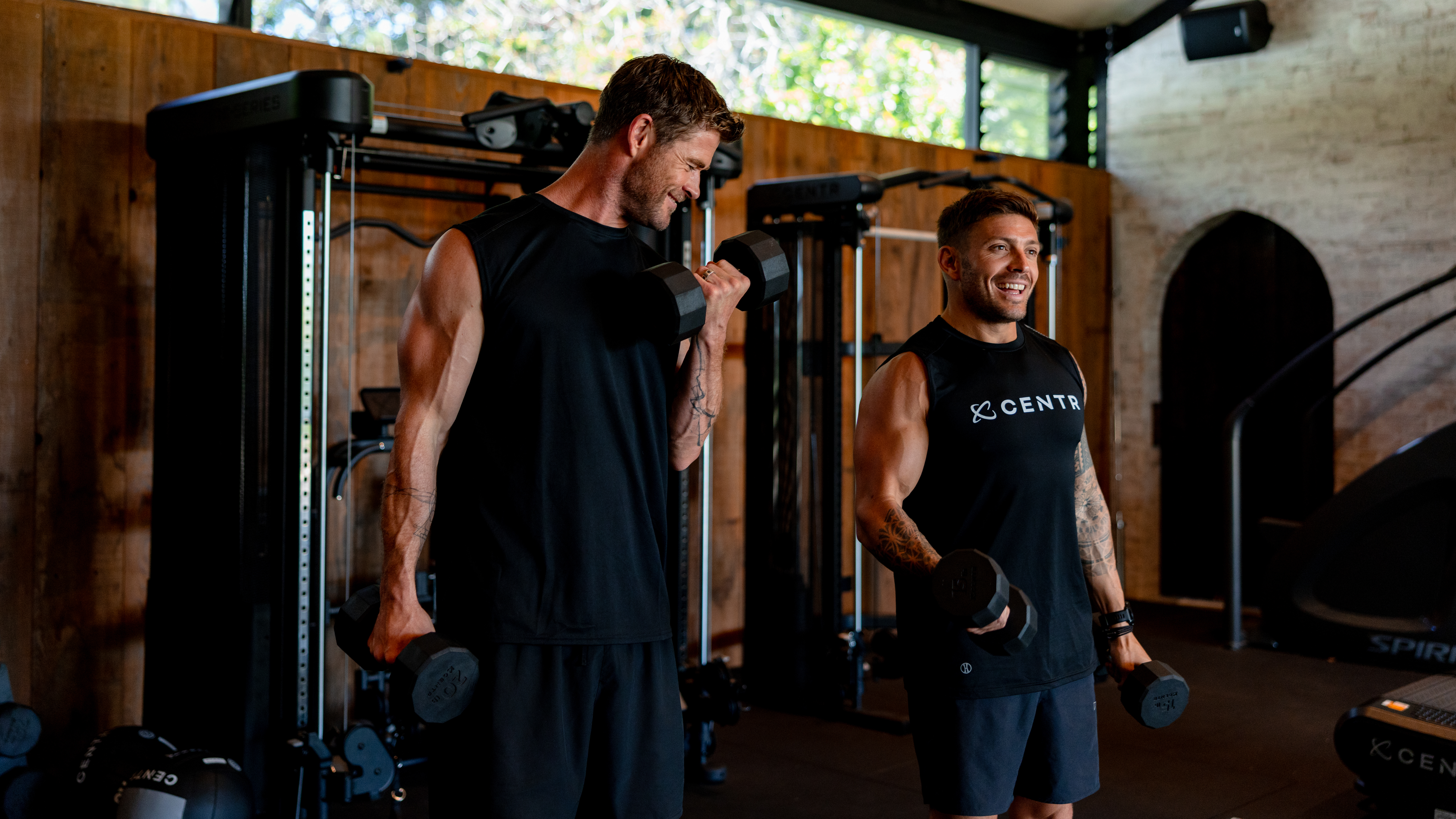 Build blockbuster arms and abs with Chris Hemsworth's go-to dumbbell circuit
Build blockbuster arms and abs with Chris Hemsworth's go-to dumbbell circuitAll you need are adjustable dumbbells and 20 minutes
By Sam Rider Published
-
 Forget crunches—if I wanted to improve core strength I'd do this neck-friendly Pilates workout
Forget crunches—if I wanted to improve core strength I'd do this neck-friendly Pilates workoutAnd it takes just five minutes
By Maddy Biddulph Published
-
 Should you eat before bed?
Should you eat before bed?feature Late night cravings are often inevitable but should you eat before bed or will it affect your health?
By Alice Porter Published
-
 How to improve your memory: six easy techniques
How to improve your memory: six easy techniquesOur experts offer six simple tips to help you improve your memory – because no matter your age, brain health is important
By Stacey Carter Published
-
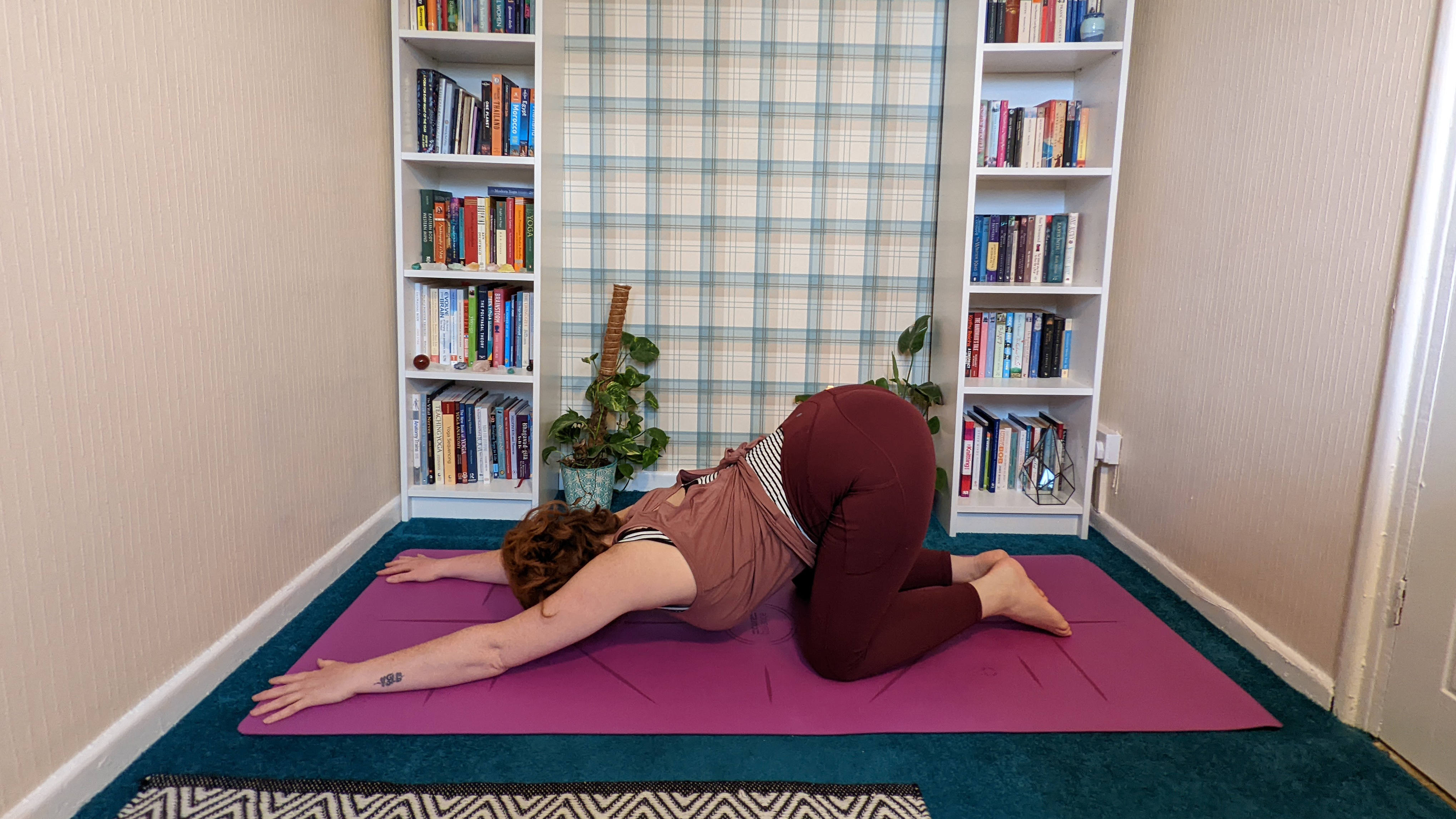 Yoga for shoulder mobility and strength
Yoga for shoulder mobility and strengthhow to Yoga for shoulder mobility: remove tension and aid movement with these yoga postures
By Kat Bayly Published
-
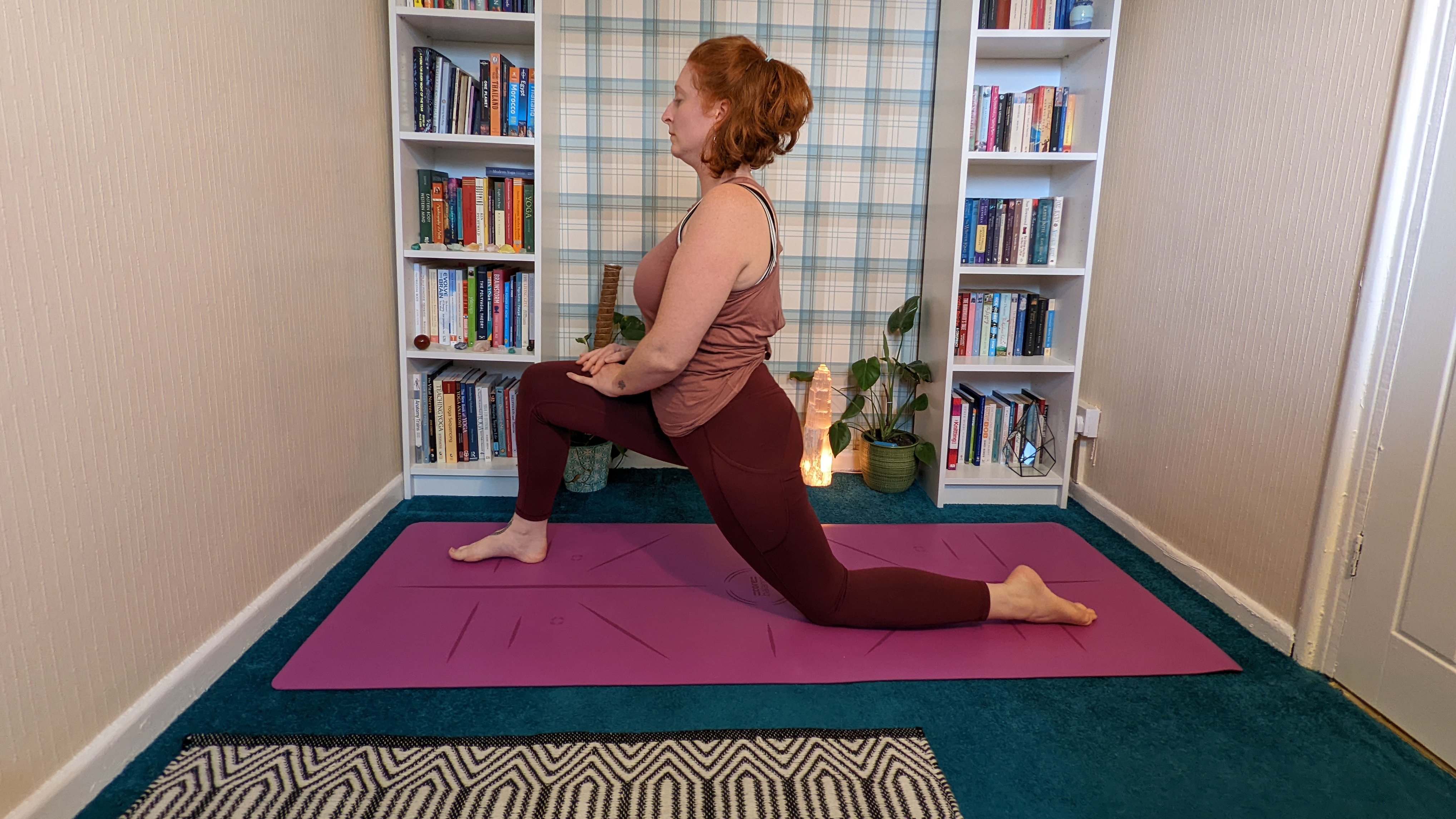 Hip mobility yoga flow: improve your flexibility with these moves
Hip mobility yoga flow: improve your flexibility with these moveshow to Hip mobility yoga: free up tight hips with these exercises
By Kat Bayly Published
-
 Six ways to get rid of period bloating
Six ways to get rid of period bloatingStruggling with period bloating? Try these tips and tricks to beat the bloat
By Maddy Biddulph Published
-
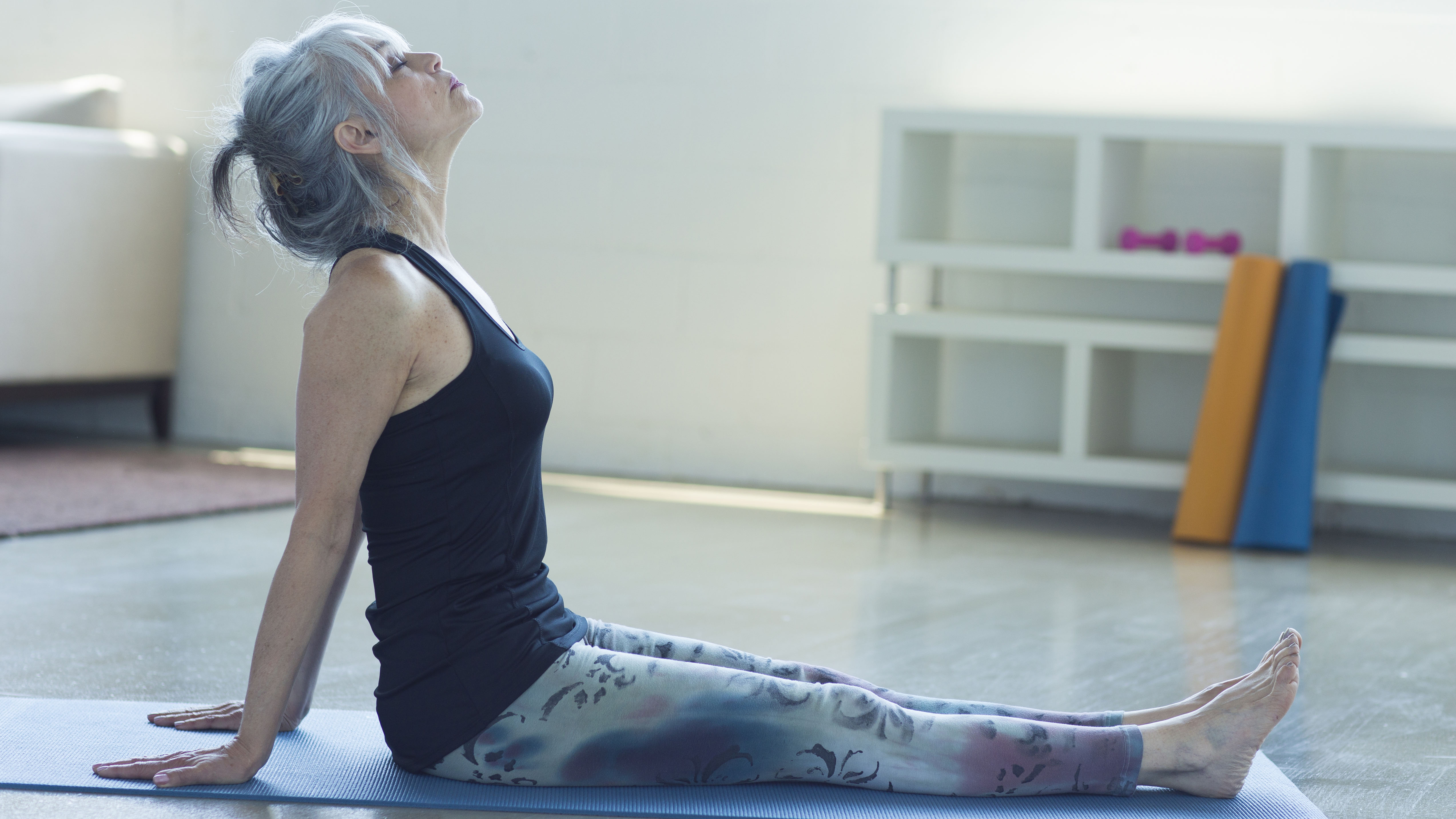 How to do yoga with bad knees
How to do yoga with bad kneesEase joint pain by learning how to practise yoga with bad knees
By Sam Hopes Published
-
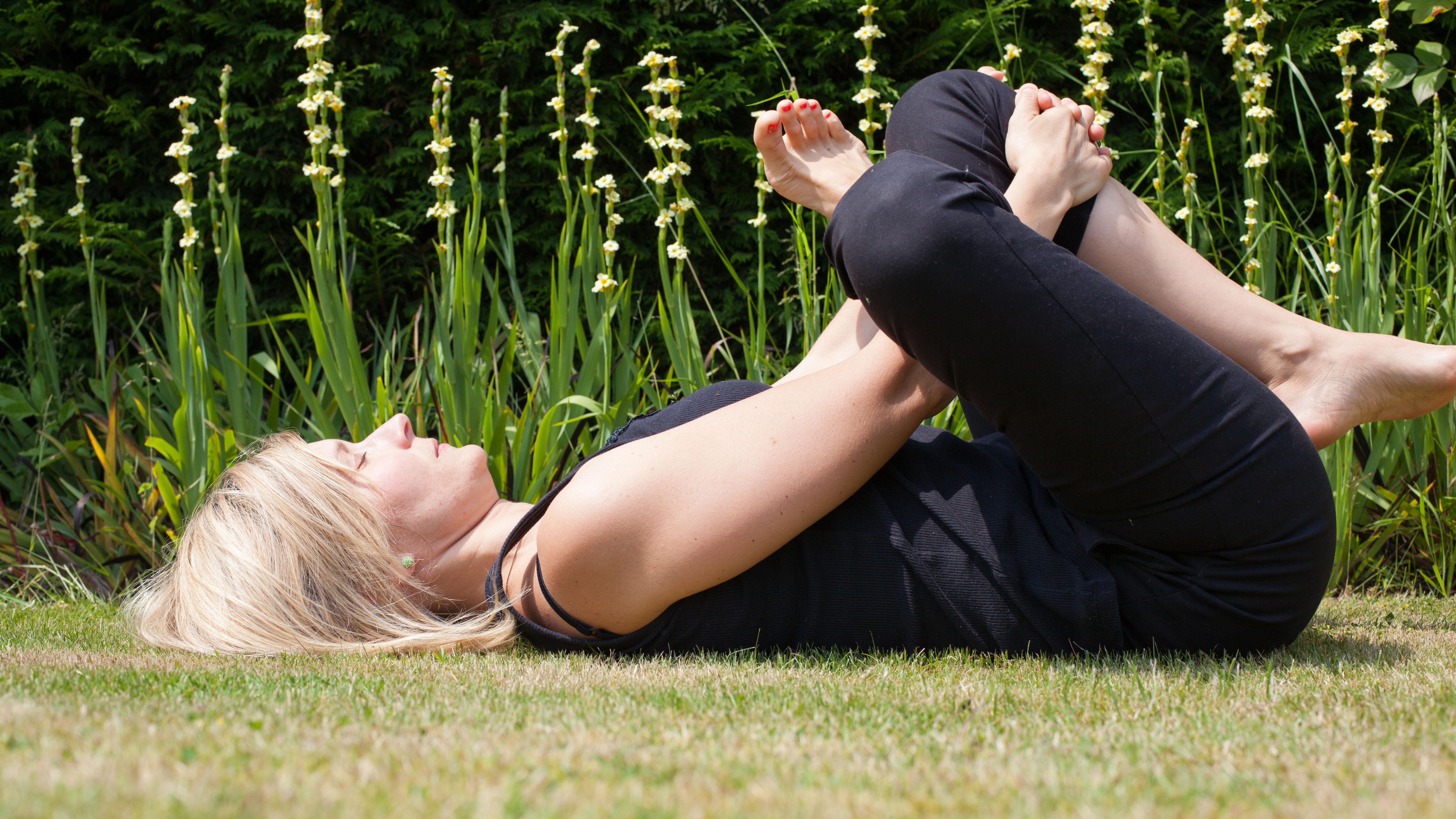 Yoga for knee strength: six moves to try
Yoga for knee strength: six moves to tryYoga for knee strength: what to try at home to improve joint mobility and stay supple.
By Maddy Biddulph Last updated
-
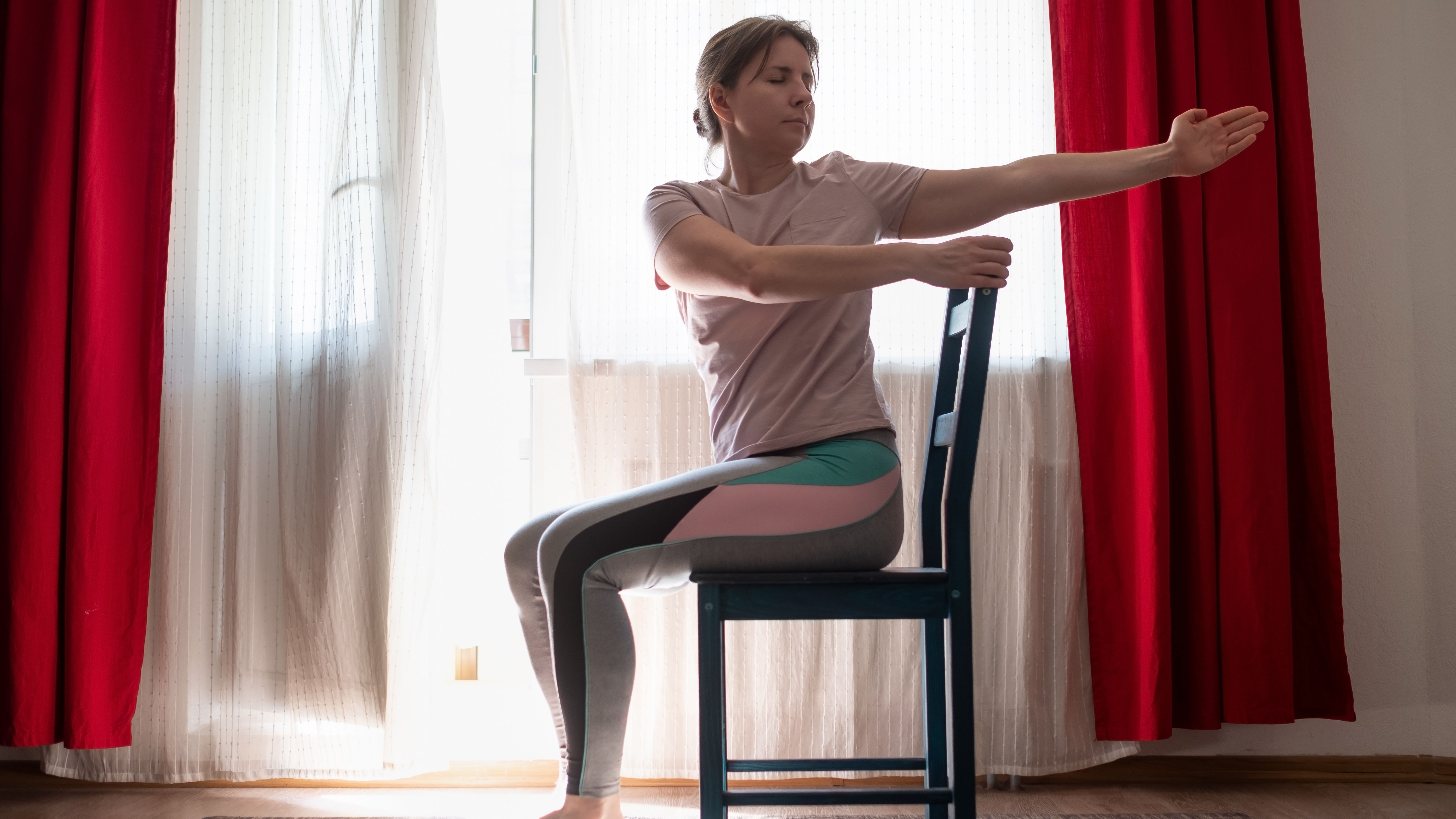 How to do a seated yoga flow
How to do a seated yoga flowGrab a chair and try this seated yoga flow, to improve your mobility and flexibility
By Maddy Biddulph Published